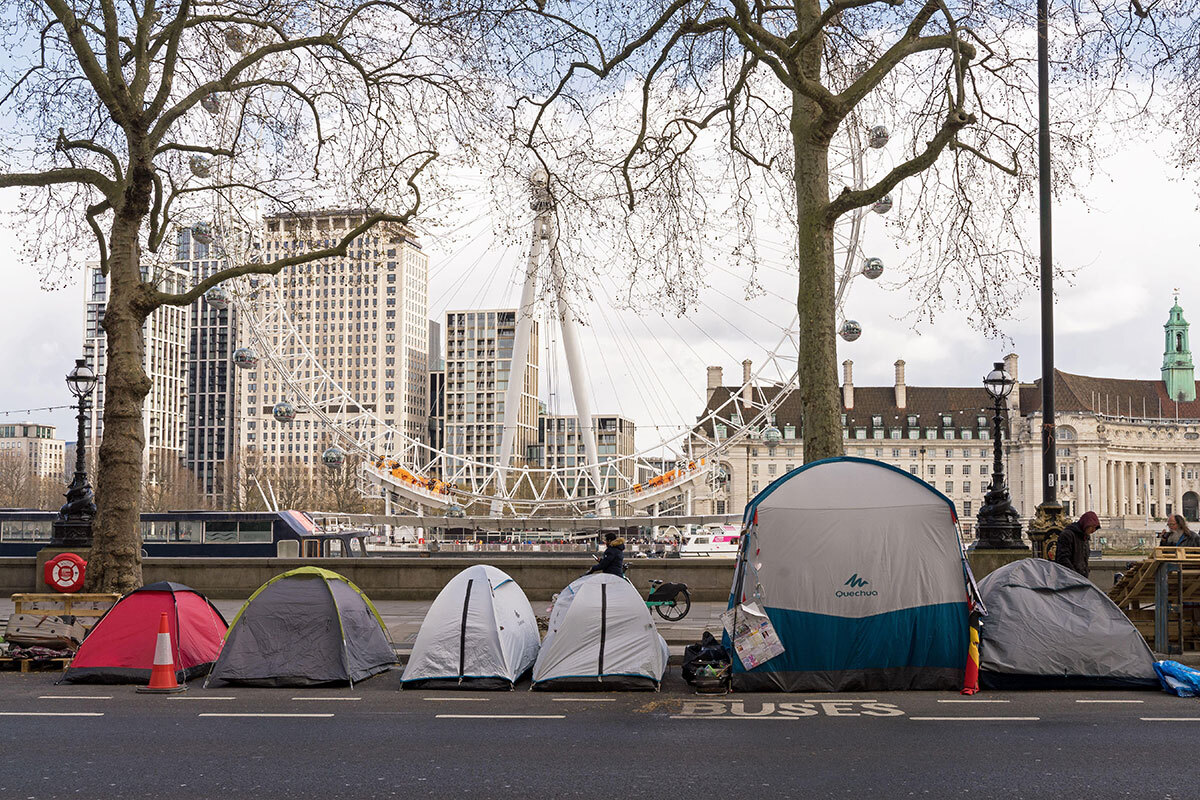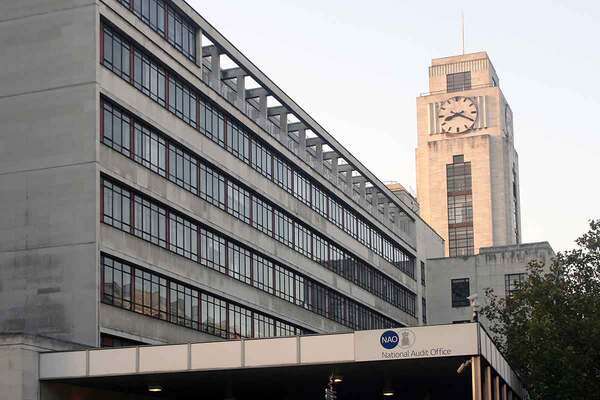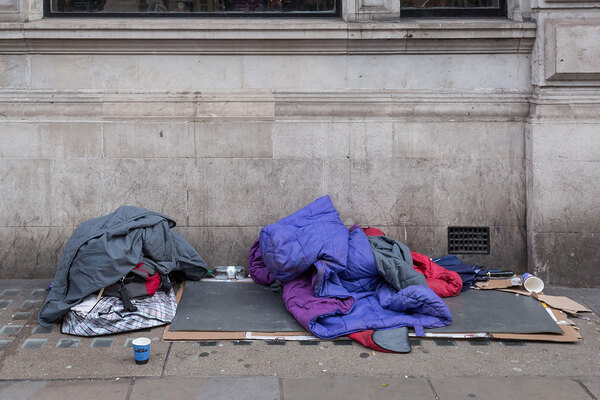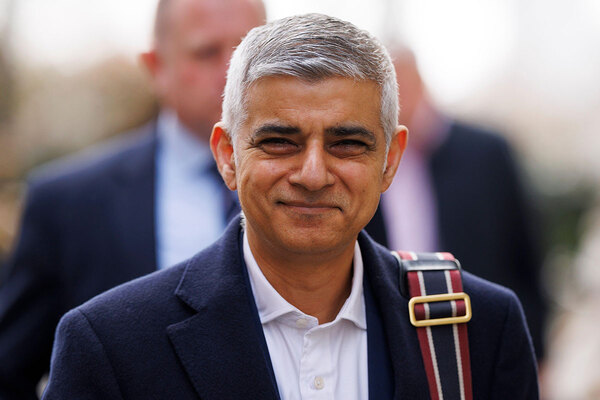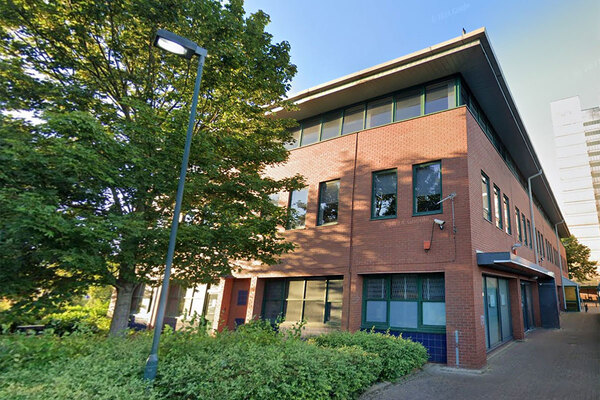You are viewing 1 of your 1 free articles
Rough sleeping in London up by 29%, according to new quarterly figures
New figures show rough sleeping in London was up 29% in the last quarter compared with the same period last year.
The new data found 4,223 people were sleeping rough in London between April and June 2024, an increase of 29% on the same period last year.
It is a record high in a year unaffected by COVID, according to the Combined Homelessness and Information Network (Chain), a multi-agency database.
Even during the pandemic in 2020, the number of people sleeping rough over this period was 4,227 – just four more than this year.
The figure is also slightly up from the January to April figure of 4,118 people.
However, it is still lower than the record set between October and December 2023 of 4,389 people.
Chain also recorded that 1,931 people – nearly half the total – were sleeping rough for the first time. This is a 20% increase on the same period last year.
It also recorded 624 people deemed to be living on the streets, 52% higher than last year.
There were 1,740 people sleeping rough intermittently, 35% higher than the same period last year.
Sadiq Khan, the mayor of London, has pledged to end rough sleeping in the capital by 2030.
Emma Haddad, chief executive of St Mungo’s, the homelessness charity, said: “It’s extremely worrying to see yet another rise in rough sleeping in London.
“More and more people are finding themselves on the streets due to rising rents, unaffordable bills or the unexpected loss of employment. Our outreach teams are out every day trying to help people out of homelessness, but it’s harder and harder to find options.
“We look forward to seeing a minister appointed with responsibility for preventing homelessness, so that we can support the new government in bringing their commitment to ending homelessness to life.”
Rick Henderson, chief executive of Homeless Link, the national membership body for frontline homelessness services, said England was facing a “homelessness epidemic”.
“Every person recorded as sleeping rough is a person who has been failed – let down by the broken systems that are meant to protect them.
“We welcome the new government’s mission to break down barriers to opportunity and recognition of the importance of a safe and stable home. Now we urgently need to see delivery of the change that has been promised.
“This should start with swift action on the cross-government approach to homelessness, and confirmation of the ministerial responsibility for homelessness, to set us back on the path towards a country where everyone has a place to call home,” he said.
Riverside is one of the largest providers of accommodation for people affected by homelessness and one of the largest social landlords in London.
John Glenton, the landlord’s executive director for care and support, said: “It is very worrying to see the total number of people sleeping rough on the streets of our capital reach a record quarterly high for the April to June period in a year unaffected by the COVID pandemic.
“We’re very heartened by Sadiq Khan’s pledge to end rough sleeping in the capital by 2030 – a commitment which was made on the proviso of working in partnership with a Labour government.”
He said reducing the number of rough sleepers will be “tough”, because of a shortage of affordable housing and the decline of resources in the sector over the past 14 years.
Mr Glenton added: “We know we can dramatically cut the number of people sleeping rough if targets are set and organisations are given the resources to achieve them.
“These resources include recruiting more outreach workers, greater investment to provide more accommodation for people affected by homelessness and a national housing and homelessness strategy to help deliver the larger investment in social housing this country needs so people can move into long-term housing when they are ready.
“We believe it is vital that money raised through economic growth or tax rises is invested in building new social housing and homelessness services, to prevent huge amounts of money being spent on poor-quality temporary accommodation.”
A Ministry of Housing, Communities and Local Government spokesperson said: “Tackling homelessness and rough-sleeping means addressing the deep-rooted issues that cause it.
“That is why we will develop a cross-government strategy so we can work with Mayors and Councils, including those in London, to get us back on track to ending homelessness for good.”
The latest figures come as the National Audit Office called on the government to lead on adopting a “genuinely” cross-departmental approach to tackling homelessness.
Sign up for our care and support newsletter
Already have an account? Click here to manage your newsletters
